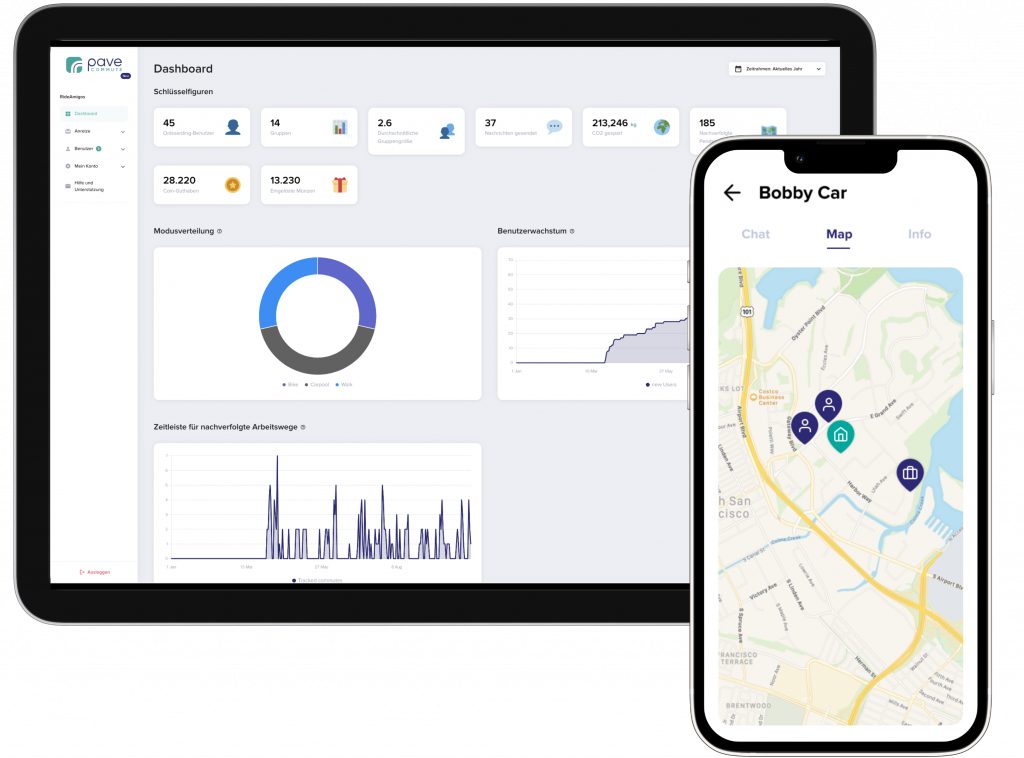In recent years, standing desks have been promoted as a healthier alternative to sitting at work all day. However, new research suggests they may not be as beneficial as once thought. While standing desks are popular, they don’t offer the health benefits many expect and may even pose risks to circulatory health. So, if you’re looking for a way to help your employees see better health and well-being outcomes, even while working full-time, it may be time to look for a new approach. Active commuting.
Why Active Commuting is a more Healthy Practice than Standing Desks
A recent study involving over 80,000 adults in the UK found that standing for extended periods does not significantly reduce the risk of cardiovascular disease. In fact, standing too long can increase the risk of conditions like varicose veins and deep vein thrombosis. In contrast, active commuting—like walking or cycling—offers a more effective way to improve overall health.
Active commuting gets your heart pumping, improves circulation, and reduces the risk of cardiovascular diseases. Unlike standing desks, active commuting adds more movement to your day, which helps to avoid the dangers of prolonged inactivity. Regular, moderate physical activity, such as walking or cycling to work, can lower the risks of heart disease, stroke, and even diabetes.
Standing Desks: The Hidden Health Risks
Standing desks were once seen as the perfect solution to sedentary office life, but they aren’t as healthy as many believe. According to research from the University of Sydney, standing for more than two hours a day may increase the risk of circulatory problems like varicose veins. The study showed that standing for extended periods does not improve cardiovascular health over the long term. This means standing desks are not the healthy alternative we thought they were.
Researchers recommend regular movement throughout the day, rather than just standing. A better approach includes frequent breaks, walking meetings, or taking the stairs. This is where active commuting comes into play.
Benefits of Active Commuting Over Standing Desks
Active commuting is more than just a way to get to work—it’s a lifestyle choice that improves your physical and mental well-being. Here’s why it’s a better healthier alternative to standing desks:
- Boosts Heart Health: Walking or cycling to work helps to keep your heart healthy, lowering the risks of heart disease and stroke.
- Improves Circulation: Regular physical activity improves blood circulation, which standing desks alone cannot do.
- Burns Calories: Active commuting burns more calories than standing, helping to improve fitness.
- Reduces Stress: Physical activity, like walking or cycling, releases endorphins, which reduce stress and improve mood.
Walking, biking, or using public transportation not only benefits your health but also helps reduce your carbon footprint 💚.
How to Incorporate Active Commuting into Your Routine
For many, standing desks may seem like a simple solution for a more active workday. However, a more effective and holistic approach is to incorporate active commuting into your daily routine. If you live near your workplace, try walking or cycling instead of driving. For those farther away, using public transportation can encourage more walking and movement throughout the day.
As a suggestion, we have summarized tips on how to encourage employees to cycle in this article here: How to Encourage Commuters to Bike to Work. If active commuting isn’t an option, it’s important to include movement in your workday by taking regular breaks. Even short walks around the office can improve circulation and boost overall health.
At Pave Commute, we take it a step further by rewarding sustainable commuting options, including active forms like cycling or walking. This approach not only promotes health but also reduces employee sick days. Try Pave Commute for 30 days free and offer your employees a healthier, more affordable solution than standing desks.
Sign up your team & try it today
Try Pave Commute with your team free for 30 days. No credit card required.










